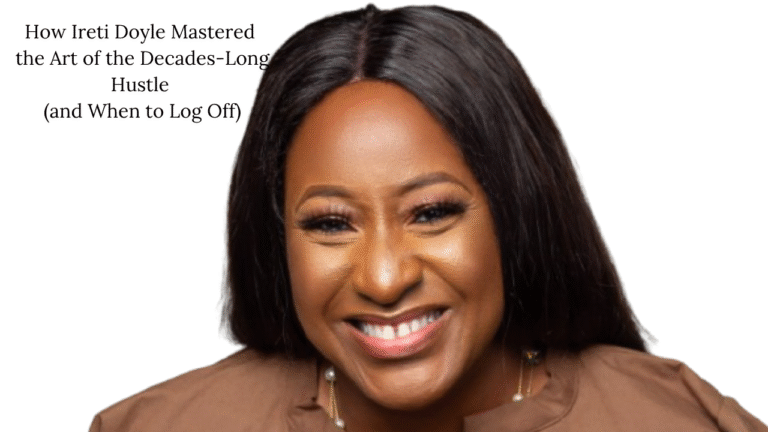
Bloody Civilian
The emergence of Emoseh Khamofu, professionally known as Bloody Civilian, onto the global music scene has been marked by a distinct artistic voice and a compelling narrative deeply intertwined with her Nigerian heritage and upbringing. From her evocative stage name to her genre-bending sound and lyrically potent themes, Bloody Civilian’s identity as a Nigerian artist is not merely a biographical detail but a foundational pillar of her creative expression. Her experiences growing up in Nigeria have shaped her perspectives, her musical influences, and her artistic ambitions, resulting in a body of work that is both deeply personal and reflective of a broader cultural context.
The Potent Symbolism of Her Stage Name
One of the most immediate and striking ways in which Nigeria has influenced Bloody Civilian is through her very moniker. Growing up in the Northern part of Nigeria, in regions including Kaduna, Jos, and Abuja, she experienced firsthand the realities of military violence. The name “Bloody Civilian” originates from a derogatory term used by the army to refer to ordinary people in this context. Instead of shying away from this loaded term, Khamofu has reclaimed it as a symbol of empowerment and a means to challenge societal norms. As she explained, she took it as, “‘You know what? I am an ordinary civilian,’ but I decided that I would make it something that I would tone and make my own, and use it as a way to go against the norm, and empower myself”. This conscious choice of name underscores the profound impact of her early experiences in Nigeria on her artistic persona and reflects her “experimental, unfiltered, and powerful storytelling abilities”.
Deeply Rooted and Diverse Musical Influences

Furthermore, Bloody Civilian’s musical DNA is intrinsically linked to the sounds and rhythms of Nigeria and the wider African continent. Raised in a musical household where her father, who later became a full-time engineer, was a touring bass guitarist, she was exposed to a diverse range of genres, including blues, instrumental jazz, and African music. Her listening habits also encompassed African pop music, often infused with R&B influences, as well as popular American Black music genres like R&B, hip-hop, and trap. Bloody Civilian herself unequivocally states that her “Nigerian roots are my music,” and her compositions serve as a vehicle for telling “a Nigerian story”. She identifies African music as her “biggest, biggest influence”, finding it inherently relatable, with R&B and trap following as significant influences. This deep immersion in diverse musical traditions, with African sounds at its core, has led to her description of her music as “Afro-fusion,” a genre where she experimentally blends various African elements. Notably, Nigerian singer-songwriter Aṣa served as a crucial early inspiration, fueling her desire to pursue music.
Lyrical Themes Reflecting Nigerian Realities
The lyrical content and thematic concerns prevalent in Bloody Civilian’s music are also heavily informed by her Nigerian experiences. Her debut single, “How To Kill A Man” (2022), is described as taking a “tongue-in-cheek but furious look at misogyny and social injustice”. This track, which initiated her career as a recording artist after starting as a record producer, and for which she wrote, shot, produced, and directed the video, served as the lead single from her debut extended play, Anger Management. Similarly, the song “Where I Am From,” featured on the same EP, “addresses social issues and the effects of bad decisions by Nigerian politicians on citizens”. These examples highlight her direct engagement with the socio-political realities of her home country, using her music as a platform for commentary and expression. She aims to be honest and express what’s on her mind, even about difficult topics like anger, often using humour as a tool for conversation.
Ambition to Empower and Uplift African Artistry
Beyond addressing specific issues, Bloody Civilian harbours an ambition to “empower, platform and uplift” African art through her work. Her involvement in the soundtrack of the Marvel blockbuster Black Panther: Wakanda Forever with the track “Wake Up” featuring Rema, a film celebrated for its strong African representation, aligns perfectly with this aspiration. She was recommended for this project by her manager, Semi ‘Chubbz,’ who was co-producing the soundtrack and knew her from Instagram. The co-production of “Wake Up” with Wakanda Forever composer Ludwig Goransson further demonstrates her desire to transcend musical boundaries, incorporating Caribbean influences into her pop-leaning sound. This collaboration on a globally recognised platform underscores her commitment to showcasing African creative talents.
Early Musical Development within Nigeria
Even Bloody Civilian’s early forays into music within Nigeria played a crucial role in shaping her multifaceted skill set. As a teenager in school, she was recognised for her singing and guitar playing, often performing original music at talent shows where people learned her lyrics. She also began making beats and sharing them with rappers in her school, gradually honing her production skills. This early immersion in various aspects of music creation laid the groundwork for her to become not only a singer-songwriter but also a proficient record producer. Her initial experimentation with music production began around the age of twelve using the software Audacity. Despite lacking sophisticated equipment in her early days in a hostel dorm, she creatively used everyday objects like buckets and toothbrushes to create beats. Furthermore, growing up in a conservative environment where her movement was restricted by her parents, may have inadvertently fostered a deeper focus on her internal creative world and musical pursuits. Her supportive but also critical parents were her first audience, providing valuable early feedback on her songwriting.
Conclusion
In conclusion, Bloody Civilian’s Nigerian heritage and upbringing are not superficial influences but rather deeply embedded aspects of her artistic identity and creative expression. From the powerful symbolism of her chosen name, reflecting the realities of her homeland, to the rich tapestry of African-rooted sounds that define her music, and the socially conscious themes that permeate her lyrics, Nigeria is an undeniable and integral force in her work. Her ambition to elevate African art on a global stage further underscores the profound connection between her identity as a Nigerian artist and her creative aspirations. As Bloody Civilian continues to evolve and share her unique voice with the world, the foundational impact of her Nigerian roots will undoubtedly remain a defining characteristic of her artistry.




2 thoughts on “The Profound Influence of Nigerian Heritage on Bloody Civilian Musical Identity and Creative Expression”